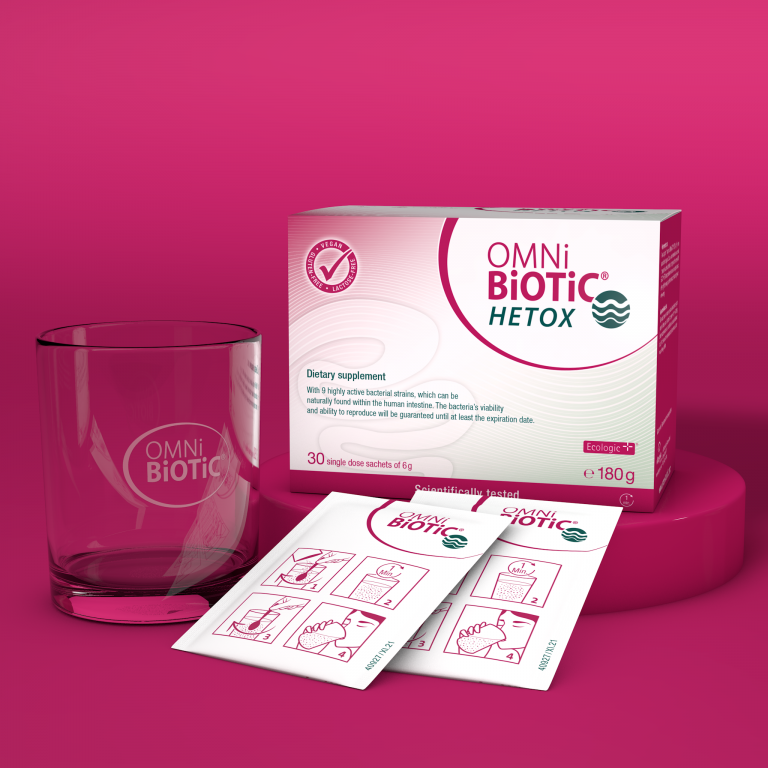Although the importance of intestinal bacteria and the vaginal flora is not particularly well known, they both play a major role, especially in relation to pregnancy, colic or fertility. In this article we aim to show the extent to which our intestinal bacteria have an influence on these areas.
The vaginal flora as a protective shield

The vaginal flora is generally an important protective shield against harmful germs. This is because billions of different, useful lactobacilli (lactic acid bacteria) ensures that the vagina has an acidic pH value, in which bad bacteria and fungi cannot multiply.
This protection is important to keep the reproductive organs healthy and functioning. The vaginal flora is built up from birth through the oral intake of beneficial bacteria.
However, the delicate balance of your vaginal flora can quickly become unstable. There are many reasons for this: hormonal changes, which naturally accompany every pregnancy, but even a weakened immune system or antibiotics can severely disturb the balance of the vaginal flora.
If impaired, the lactobacilli can no longer adequately fulfil their protective function. As a result, unwanted microorganisms can multiply easily and gain the upper hand. An imbalance, namely dysbiosis, develops, which often leads to infections. Especially during pregnancy, timely treatment for an imbalanced vaginal flora in consultation with and under the supervision of doctors (e.g. gynaecologists) is particularly important, as infections can spread to the reproductive organs.
What does the vaginal flora have to do with fertility?
An important fact to note is that the lining of the uterus is not sterile, but is actually colonised by bacteria that have a significant influence on a woman’s fertility. According to studies, a disturbed bacterial colonisation can hinder the implantation of the fertilised egg. Recent scientific papers have shown that the microbiome of a large proportion of the healthy women studied consisted of over 90% lactobacilli.
The presence of other germs or a lack of lactobacilli in the vaginal flora can significantly reduce fertility.
It is interesting to note that with a Lactobacillus-dominated microbiome in the uterus, embryo implantation was already 60.7% successful at the first artificial insemination, but only 23.1% with a Lactobacillus-reduced microbiome. The rate of successful pregnancies decreased from 70.6% to 33.3% with a lactobacillus deficiency, and the proportion of live births decreased from 58.8% to 6.7%.
In order to regulate the balance of the vaginal flora in the case of a deficiency of lactobacilli, specially developed probiotics are an option: OMNi-BiOTiC® FLORA plus+ contains four scientifically combined bacterial strains that have been selected and tested in clinical studies and are specifically suited to fighting off harmful microorganisms. The special feature of OMNi-BiOTiC® FLORA plus+ is that it is taken orally: simply drink it! Your intimate area is colonised in a completely natural way with the lactic acid bacteria that are part of a healthy vaginal flora – without any additional irritants or artificial substances from capsules or suppositories. This way, your vaginal flora is naturally kept in balance during pregnancy!
Pregnancy and colic
 Our intestinal flora also plays a central role in pregnancy, from conception to birth. Did you know that the bacteria that colonise your vagina come from the intestines? Via the “mucosal path” the beneficial lactobacilli that keep your intimate area healthy reach their destination from the rectum and settle there permanently.
Our intestinal flora also plays a central role in pregnancy, from conception to birth. Did you know that the bacteria that colonise your vagina come from the intestines? Via the “mucosal path” the beneficial lactobacilli that keep your intimate area healthy reach their destination from the rectum and settle there permanently.
These lactic acid bacteria not only keep the vaginal area healthy and ward off unwanted fungi and germs, they are also of great importance during conception: studies show that fertilised eggs implant much better in women with a vaginal flora rich in lactobacilli during artificial insemination.
The colonisation of the intestine with the right bacteria naturally also plays a central role in digestion and nutrient absorption. Clinical studies show that babies’ tummies receive important support from the right probiotic bacteria: Around every third child suffers from colic in the first weeks and months of life, which manifests itself in particular through excessive crying several times a week for more than 3 hours a day – this is not only painful and exhausting for the newborn, but also puts a massive strain on the parents’ nerves.
In a study, it was shown that a significant improvement in infantile colic could be achieved in over 82% of the babies through the use of special probiotic bacteria.
Birth: Where bacterial colonisation begins
From birth, the intestine plays a decisive role in numerous aspects of general well-being: In particular, the development of the child’s immune system is shaped by the intestinal bacteria. Large scale studies at renowned clinics show that by supplying the child with specially selected intestinal bacteria, the risk of allergic reactions occurring can be reduced by 80% – provided the child is supplied with it daily throughout the first year of life and the mother has also taken this combination of bacteria from the 8th month of pregnancy.
For a good start for mother and child, colonisation with the right bacterial strains is of enormous importance.
The mother’s intestine can be colonised with a healthy bacterial flora through a balanced, high-fibre diet and specially combined probiotics. This is transferred to the child in several ways: During a natural birth, the baby comes into direct contact with the mother’s vaginal flora. These beneficial bacteria originate from the mother’s intestine and find their destination in the child’s body within a very short time.
Through vaginal birth, the mother’s bacterial flora is transferred to the baby. Particularly important are bifidobacteria and lactobacilli, which can also be transported into the mammary glands and passed on to the child through breastfeeding.

In the case of a caesarean section, however, this natural initial colonisation is missing, and it is often the case that more pathogenic germs than useful probiotic bacteria settle in the baby’s intestine. However, the mother’s altered intestinal flora and the resulting imbalanced immune system can also be passed on to the baby at birth – this is particularly problematic if there is a family history of allergies. However, this shift of important immune cells, the so-called TH1 and TH2 cells, can be regulated with selected probiotic bacteria.
At the Department of Immunology at Wilhelmina Children’s Hospital in Utrecht, OMNi-BiOTiC® PANDA was developed after years of research and the positive effects were clearly proven in large scale studies. For this purpose, 156 pregnant women with a family history of allergies and neurodermatitis were recruited and their newborns were then examined.
The occurrence of eczema in early childhood is a serious risk factor for the development of IgE-mediated food allergy. The incidence of atopic eczema in babies was significantly reduced by 71 percent when OMNi-BiOTiC® PANDA was taken daily during the last two months of pregnancy and throughout the child’s first year of life.





























